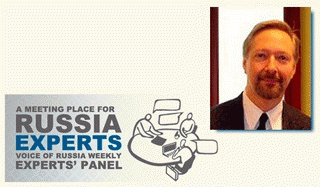First published on June 24, 2013 as part of the Voice of Russia's Expert's Panel
The recent G8 summit revealed that, having decided on the proper moral stance the world should take on Syria, some of the participants were not keen on hearing opposing arguments. Canadian Prime Minister Stephen Harper's remark about this being the "G7+1" was meant to suggest that Russia does not belong in such august company, but it could just as easily have been translated as the "G7 against the Rest." And, like Samuel Huntington's comparable formulation, it does not imply any common purpose among the Rest, beyond a disapproval of the West's self-righteousness.
Yet there is, in fact, no unity to be observed even among the G7. As Patrick Armstrong notes, it is really "more like G4 plus 3 ." Moreover, Russian Foreign Minister Sergei Lavrov argues that while tactics may differ, the objective "to save Syria as a sovereign, multi-ethnic and multi-confessional state" is shared by all.
But there is one very significant catch. A few states insist on an additional goal -- the removal of Syrian President Bashar al-Assad. Despite all evidence to the contrary, they are convinced that this will not only end the conflict but somehow transform the Syrian opposition into a viable governing council.
Russia, on the other hand, points to the many groups in Syria that continue to support Assad, either out of loyalty or out of fear of the rebels. It suggests that insisting on Assad's removal merely encourages rebel intransigence and prolongs the fighting.
Given the complexity of the situation, it is curious to hear claims that the removal of Assad is the only truly moral approach. It is certainly not a morality that most international relations thinkers would recognize, for it appears to be devoid of any sense of moral reckoning and responsibility for the outcome.
This is not to say that intervention on behalf of universal moral standards is never justified. Russia has repeatedly stated that sovereignty is not an absolute right and does not, for example, allow nations to engage in such things as genocide.
But intervention must be held to a clearly defined international standard. It must, at the very least, reflect the consensus of the world community, not merely the judgments of a handful of nations. In other words, the judgments of a handful of Western or Arab governments cannot take the place of the explicit judgment rendered by the entire world community, expressed through its acknowledged instrument -- the United Nations.
It is difficult for some in the West to understand and appreciate Russia's stance for what it actually is -- namely, one of moral principle -- for most simply take for granted that Western moral standards are universal. Russia, however, assumes that universal moral standards are achieved only when a consensus among nations emerges. Where consensus cannot be achieved, there is no universal moral standard (at least not yet).
This type of moral discourse also demands that participants reflect long and hard before orchestrating regime changes. It is, paradoxically, a discourse that international relations theorists like Reinhold Niebuhr, George F. Kennan, and Sir Herbert Butterfield would have appreciated.






